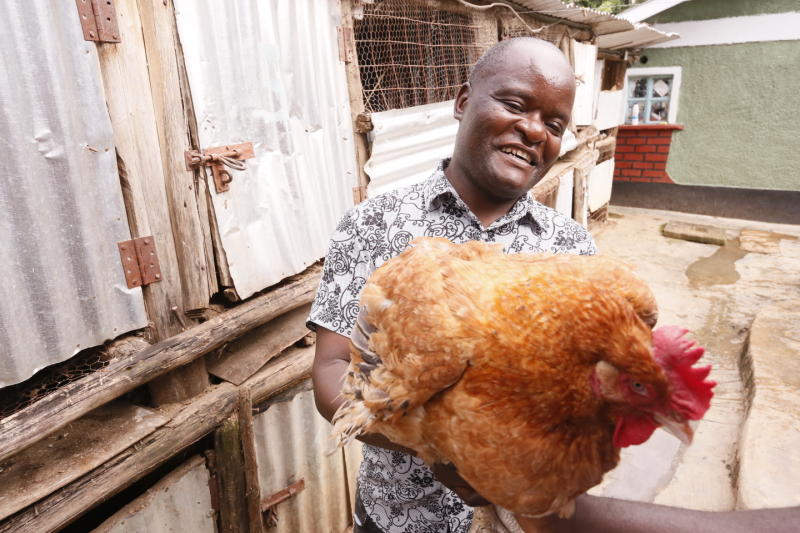×
The Standard e-Paper
Home To Bold Columnists

On the day of this visit, Daniel Mang’ong’o is administering antibiotics to his flock. Mang’ong’o, 40, rears chicken, geese, turkeys, ducks and guinea fowl on his three-quarter-acre farm in Muraka village, Kakamega County.